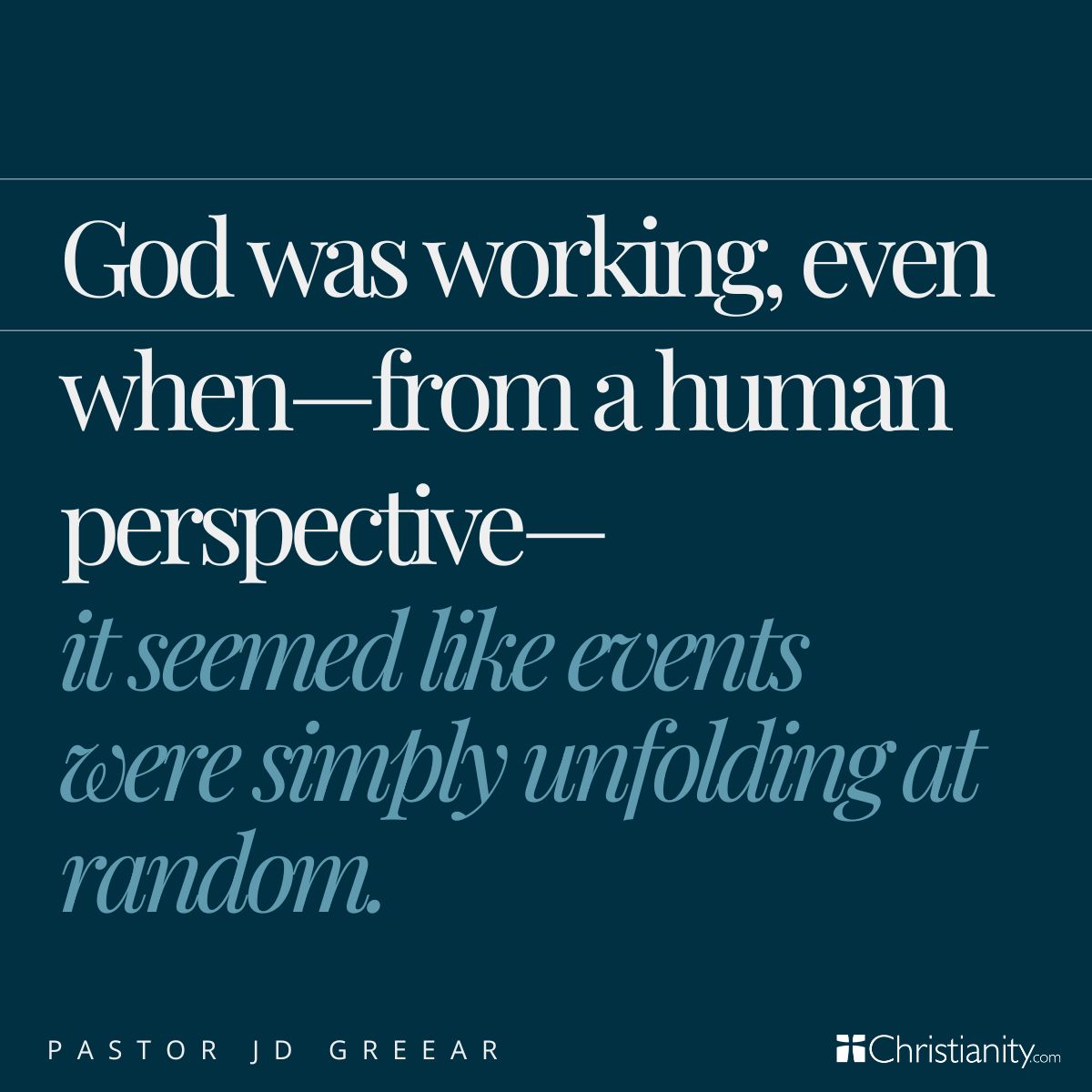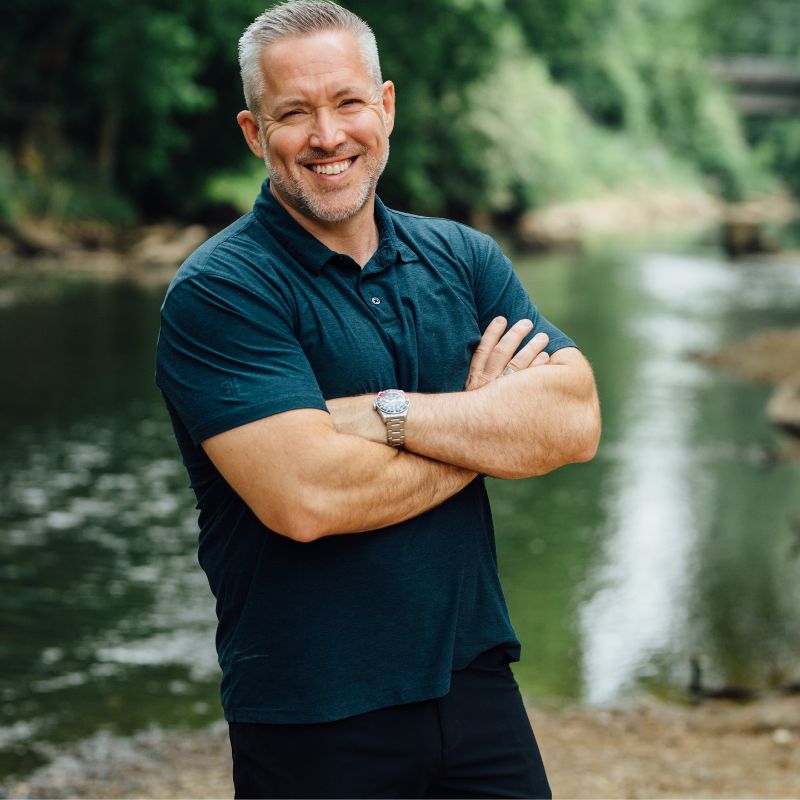
In the book of Exodus, Moses illustrates several things about how God is at work in our lives individually.
Now, I want to warn you, everybody wants to jump right to asking, “What’s all this mean for my life? Make it practical, Pastor. What does all this mean when I go to work on Monday?” In fact, most sermons I’ve ever heard on Moses focus only on this part, sermons with titles like: “Holy Moses! God Uses Stammerers, Too.” Or, “Moses, the Original Waterbender.” Or, “Three Ways to Lead like Moses.” (No, I did not make these up.)
Please don’t do that. Because you can’t understand God’s will for your life until you understand the bigger picture of what God is doing in the world. Many of us say, “I want to know God’s will for my life.” But the more important question is “How does my life fit into God’s will?” Or, the way I heard Louie Giglio say it: “It’s not ‘God’s will for my life,’ but ‘my life for God’s will.’” That’s where you should start.
And his will? He’s working salvation in you and through you. He’s bringing you through an Exodus into a Promised Land of faith and obedience, where you trust him and learn to be satisfied by his presence alone. He doesn’t just take you out of Egypt, but he gets Egypt out of you. He’s not just taking you to heaven, but he’s putting heaven into you. You’ve got to always interpret everything he’s doing in your life through that lens.
There are two lessons we learn about God’s work in our lives from the beginning of Exodus.
1. Even when it seems God isn’t working, he is!
In all these places in Israel’s story where it seems like God is absent, he is not. Think about it: Was it just an accident that Moses’ sister happened to put the basket into the Nile at the place where Pharaoh’s daughter would be the one to find it? No. Was it an accident that the woman who found Moses was one of the few people in Egypt willing to defy Pharaoh’s command? No. God was there, guiding the currents, protecting baby Moses. Was it “pure accident” that Moses would grow up in Pharaoh’s house, where he’d form the relationships and gain the knowledge to save Israel one day? No. Because he was raised in Pharaoh’s house, he’d get military training where he’d learn how to organize large groups of people. Because he was raised in Pharaoh’s house, he’d have learned to read and write, which most Hebrews couldn’t do, and so he’d be able to systematize God’s laws and write five of the most influential Bible books, Genesis through Deuteronomy.
Was any of that pure accident? Not a chance! God was working, even when—from a human perspective—it seemed like events were simply unfolding at random.

In the same way, God’s always been quietly at work in your life, doing the same kinds of things. In the pain, in what felt like chaos, his invisible hand has been writing a story, and it’s time you woke up to that story. What do you see in your life right now as random, chaos, or just unfair? I’m not saying it wasn’t unfair or that God somehow delighted in your pain. I’m just saying that even in the chaos and the pain, you have a redeeming God who is writing a story that will transform all of it, if you let him.
Stop blaming God for your brokenness and come to God for healing from it—he’s the only one who can heal you from it. Yes, lament what happened to you. Learn from it wherever you can; confront where you must. But don’t stay wallowing in Egypt. A God stronger than Pharaoh is ready to lead you to a Promised Land of blessing. It’s time to go!
2. God saves through weakness, not strength.
God uses none of the things the world considers strong as part of his salvation plan. In Exodus 1—2, for instance, all the heroes in the story are women. Modern readers might just skip over that: Of course, women saved the day! What’s so special about that? We’re overly familiar with women as heroes. But back then, that would have been jarring. Women were considered second-class, sometimes even treated as less than human.
It gets more extreme. God uses not just women, but slave women. And not just slave women, but midwives—which is significant because historians tell us became midwives because they couldn’t have their own kids. Barren, enslaved, and second-class … that’s how these women would have seemed to everyone in that society.
But not to God. In fact, God dignifies their story by telling us their names, Shiphrah and Puuah (which mean “beautiful” and “sparkle”). Two beautiful, sparkling women overlooked by everyone else, but mightily used in this story.
In contrast, we’re never given Pharaoh’s name. He’s the most powerful man in the world, but he’s unnamed in God’s universe. Meanwhile, two faithful, obedient midwives from the slave class are known and celebrated.
But it gets even better. The other woman who saves the day is Pharaoh’s daughter—an Egyptian woman, a Gentile woman, definitely one of the “bad guys.” But when she finds Moses, she saves his life. God brought salvation through poor, infertile women and a Gentile outsider that most of us would have considered beyond God’s reach. Don’t you see what this is teaching?
Even as we get into the life of Moses, it’s not the advantages Moses had experienced that became the means of salvation. In fact, if you look at Exodus 1:20, you’ll see that Moses, in writing his biography, skips over his entire experience of growing up in Pharaoh's household. He never even mentions it! If I had been a poor, adopted immigrant kid who was rescued off the street by the President’s daughter and grew up in the White House, and I was writing my own autobiography, I’d definitely include a few chapters about that. In fact, I’d probably put it on the cover: “LESSONS I LEARNED IN THE WHITE HOUSE.” Yet, Moses never brings it up; instead, it’s his insignificant time in the wilderness that he talks about. Because there, in the wilderness, not in Pharaoh’s house, is where he learned something much more important than the arts of Egyptian power. In the wilderness, he learned to walk with and trust in God.
This is a melody we’ll hear all throughout the Bible: God uses the weak and he saves through weaknesses. It was the melody first established in Genesis, where God uses a sterile old man and woman to found a great nation. (Not once, by the way, but twice.) He then chooses Jacob, the weak secondborn, not Esau, the strong older son, to continue the line of blessing. Then, of Jacob’s two wives, he chooses Leah, the ugly one, the overlooked one, over Rachel, her beautiful sister, and gives her the Messianic line.
And now, to start off Exodus, we’ve got a series of midwives and Gentiles in the salvation story. Moses’ advantages amount to almost nothing, but the wilderness where he met God is what is important.
The same goes for you. Your advantages? Not a big deal to God. But how do you respond to him in the wilderness? Huge deal.
Friend, don’t waste your wilderness. Stop spending your mornings scrolling through social media. It’s time to discover what God has for your life. Meet him every day. Reach for your Bible to see what he’s doing. Because I can guarantee you, God is up to something all around you. The only question is, are you available and ready to see it?
Photo Credit: SWN Design

Pastor J.D. completed his Ph.D. in Theology at Southeastern Baptist Theological Seminary. He serves as a member of the Board of Directors of Chick-fil-A, serves as a Council member for The Gospel Coalition, and recently served as the 62nd president of the Southern Baptist Convention. Pastor J.D. and his wife Veronica are raising four awesome kids.
"Editor's Note: Pastor JD Greear's "Ask the Pastor" column regularly appears at Christianity.com, providing biblical, relatable, and reliable answers to your everyday questions about faith and life. Email him your questions at [email protected]."




